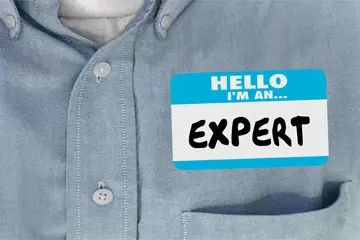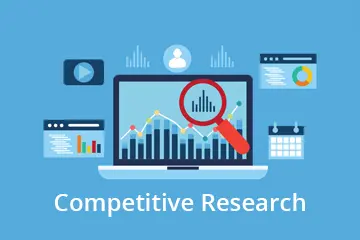Pick a Designer or DIY Platform
At this point you've outlined what your website needs to contain, what features it'll have, and how people will navigate the website. If you still need to plan your website , head over to the previous blog. Deciding whether you are going to build your website first by choosing a DIY platform or hiring a Designer / Developer to build it for you is rather easy.
- Do you have the Budget?
- Do you know anything about Coding?
- Are the features you want available, prebuilt?
- Content Management Systems (CMS)
- Picking a Hosting Company
1. Do you have the Budget?
Building a website yourself is by far the cheapest option that exists. I'm not going to go into every DIY platforms cost but there are a number of options from Wix, to WordPress or even Square Space. You can also optionally get your own hosting and install WordPress on it as well, which is what I've done. Hosting costs me around $60-$70 per year plus the cost of my domains, which I get for around $12 per year.
The next option is to obtain hosting yourself and have someone build it for you. This can range from $500 to $10,000+. Quite the range, right? You'll still need Hosting and to purchase your domain name. Also, remember that what you pay for is what you get, most of the time. Some companies simply charge far too much for a simple website while others can be quite a bargain. The process for building & designing your website will probably take from a few days to a few weeks, depending on its complexity. You'll also need to make sure that they know everything you want included up front. Change will typically cost you extra.
DYI Platform
- Cheaper
- Faster to Live
- Ability to change design
- You make every decision
- Takes your time to build
Designer / Developer
- Can get expensive, $500+
- Must manage and direct them to get what you actually want
- Once it's done, it's done, unless you want to pay more
- May not come with a CMS
- Once you've given directions, your part is done
2. Do you know anything about coding?
I'm not saying that you have to know everything about coding, but when choosing a DIY Platform it helps to know some coding. This being that you'll know what you're looking for when adding elements, alt tags, and SEO elements. That being said, taking some simple classes may not be enough to give you this information. If you don't know anything about coding, jumping into building your first website can be quite overwhelming. So many options, so many features, so much time wasted.

If you don't know anything about coding, don't make the mistake and think the designer you're hiring knows everything either! You'll want to make sure that they understand SEO, current design patterns and principles, as well as what type of website you want. Many designers may only focus on the aesthetic and not actually know much about web development themselves. Make sure when choosing a Design / Development company, that they cover all the basics.
- Mobile First Design
- Responsive Design
- SEO
3. Are the features you want available, prebuilt?
If you're going down the path of a DIY Platform, you'll want to check to make sure they offer plugins or the features you're looking to include on your website. WordPress has thousands and for the most part will have the plugins for the features you want. You can even get custom-built plugins that'll fill in any gaps. Other platforms may be very limited in the things they give you access to, they may not even give you access to your SEO. Terrible.
If hiring a Designer / Development company to build your website, you'll want to ask this up front to make sure you'll be able to do the things you want with your website. You'll also want to verify how they're going to build your website. In many cases a company may opt to use a framework that requires that they include hundreds of extra extensions to get the functionality you want. This can get really bad, as it'll slow down your website with each additional extension they install. Make sure they understand load times and even ask them for examples you can visit. Especially if they insist that their sites that are loaded with features quickly load and test them yourself.
4. Content Management Systems (CMS)
No matter the choice you go with, you'll want to make sure you have access to a Content Management System (CMS). As a developer, I built these myself to get access to everything I wanted to be able to change. Now, I enjoy the simplicity of using platforms that include a CMS. They allow me to quickly and easily make text adjustments or modify Call-to-Action buttons. They also give me the ability to add new blogs and manage the SEO for my websites. If you choose a DIY Platform, this effectively is a CMS. If you're hiring a Designer or Development firm, you'll want to check with them before you even start. And make sure they offer something that'll be easy for you to use. Ask to see one they've got working for a current client. If they require that all changes go through them, run.

5. Picking a Hosting Company
At the end of the day, your website must be hosted somewhere. This is known as the server, where all the files and images will be stored. You'll want to make sure that the host responds quickly. If you find things like 99.9% uptime guarantees and 24/7 support, you're on the right track. Shared hosting can be a great and cheap option. Depending on your websites needs, you may want to get your own dedicated or virtual dedicated server. These are typically faster than shared hosting.
You'll also want to keep an eye on your website traffic. If your website starts to get hundreds of requests an hour, continuing to use a shared hosting account could end up sending users away. This happens when your server is too busy and can't respond to all the requests. This is also true if another person or company is on your shared hosting account. Their busy site can affect the ability for your website to load quickly. Additionally, you may want to keep all of your website related items together. So check out if you can buy your domain from your choice of hosting provider. You might want to check if they offer other things like Secure Certificates (SSL's), website backups, email, and even your company's phone number.
Odd Flex
Not to scratch on GoDaddy's back too much, but they do offer all of these things. I may be a little biased here. I did work for GoDaddy back during their famous first Super Bowl commercial in 2005. But I do keep my domains and hosting with them for a reason. If you're going the DIY Platform route, I recommend them. If you're designer or development firm is going to host your website, you'll want to make sure they cover these things too. Now, if they don't offer hosting, you'll want to find out how your site will go from Development to Live and if they help with that process.
Choosing should be Easy
The choice to choose to build your website yourself or to have a designer build one for you should be easy. If you don't have the time, you have the money, don't know anything about design or development, aren't sure how you'll find the custom features you want, and know that you'll want custom access to all sorts of data and features, then a Designer or Development company is what you want. I'll cover how to choose a good designer or development company in a future blog, so don't forget to follow me over on Facebook if you haven't already.
If you have the time, a little code knowledge yourself, or are at least comfortable with online technologies, know that you don't need many or any fancy features that wouldn't be universal, and will be content with the typical data and features offered by DIY Platforms, then a DIY Platform like WordPress is for you. If you still aren't sure which route you should go, feel free to drop me a line explaining your website or even including your diagram from my previous blog and I'd be happy to point you in the right direction.
 Pinterest
Pinterest Twitter
Twitter Facebook
Facebook

